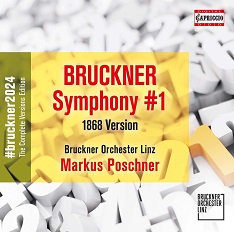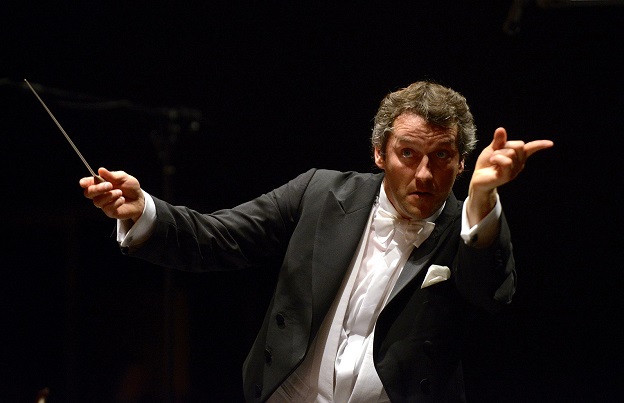What does Bruckner mean to you? What is his place in the history of music?
Bruckner is undoubtedly one of the most important geniuses of the 19th century, if not of all time. He pushed all musical parameters to their limits and far beyond, especially the function of time in music. Throughout his life, he searched for the perfect symphony, the archetype and musical image of a universal world order. Bruckner created symphonies to express the unimaginable. He was the ideal mediator between tradition and the avant-garde, and he was far ahead of his time.
What made you take on the challenge of recording all the versions of Bruckner’s symphonies, an 18-album adventure?
Our edition is not only about the completeness of all versions in a single CD box, but above all about the extraordinary way in which we play his music. Even today, Bruckner’s music is subject to an incredible number of misunderstandings and prejudices, especially with regard to tempo, phrasing and tonal balance.
His symphonies are still often played in an overwhelming pseudo-religious mode. Bruckner’s world is simply equated with that of Richard Wagner. In reality, he created his own universe, a unique and intimate vision of the symphonic world. His deep roots in Viennese classicism and Upper Austrian folk music are completely forgotten. In fact, this new approach to a more authentic interpretation was our main motivation for this extraordinary symphonic cycle.
 How did you divide the recording between the Bruckner Orchestra, of which you are Music Director, and the Vienna RSO?
How did you divide the recording between the Bruckner Orchestra, of which you are Music Director, and the Vienna RSO?
The division took place during a complicated planning phase about four years ago. All the schedules, touring activities, admission requirements and detailed availability of the respective halls in Vienna and Linz had to be taken into account: a nightmare. But of course I’m happy that we finally found a solution. We just did it.
How would you describe the collaboration with Paul Hawkshaw of Yale University, who is the consultant for this project?
We began working with Paul early on to determine the right editions, including brand-new ones, to clarify all outstanding questions about the various sources, and above all to discuss interpretive details such as tempo relationships, transitions, Bruckner’s handwritten corrections, and the numerous performance notes, most of which have never been printed. It was an extremely important and intensive period of preparation, as well as an exciting ticket to new aspects of Bruckner’s cosmos.
Has your personal opinion of certain editions of Bruckner’s symphonies changed?
Absolutely. I’m more overwhelmed and impressed than ever by his early avant-garde ideas and by the specific, archaic power of his original versions. Here you can feel the true, authentic Bruckner, independent of the influence of his immediate environment, especially after the profound disappointments and failures of his early symphonies. Indeed, what can be heard here exceeds all expectations of listeners past and present. It’s not surprising that his audiences were always completely shocked and reacted in an exaggerated and disturbed manner.
In the case of the Fourth Symphony, there’s a big difference between the 1876 and 1888 editions of the score. What are the challenges for the conductor?
The Fourth is probably the most extreme example of the metamorphosis of a Bruckner symphony. With the exception of a few themes, the 1888 version has little in common with the 1876 version; in fact, two movements have been completely recomposed. The result is a different tempo, a different conception of relationships, and even a completely different sound, since the instrumentation is completely new. The direct comparison is particularly fascinating.
Last year, the RSO Vienna was threatened with closure by the authorities of the Austrian broadcaster ORF. How did you deal with that situation?
It’s a strange irony of fate that the RSO is facing this fatal situation at the very moment of the triumph and success of our recordings in the international classical world. It’s an embarrassing process that reveals an incredible ignorance on the part of the ORF authorities. I was stunned! There was an immediate outcry throughout the music scene, so that at least the worst was avoided politically. The RSO is a unique orchestra of unbelievable quality, as every one of our Bruckner recordings proves, and of course all other recordings as well. It’s absurd to indulge in such mind games today. I would have expected the opposite: how can we make this special quality of the RSO even more successful and even more present on the international scene? The RSO is an indispensable cultural ambassador for Austria throughout the world.
Markus Poschner’s website: https://markusposchner.de























